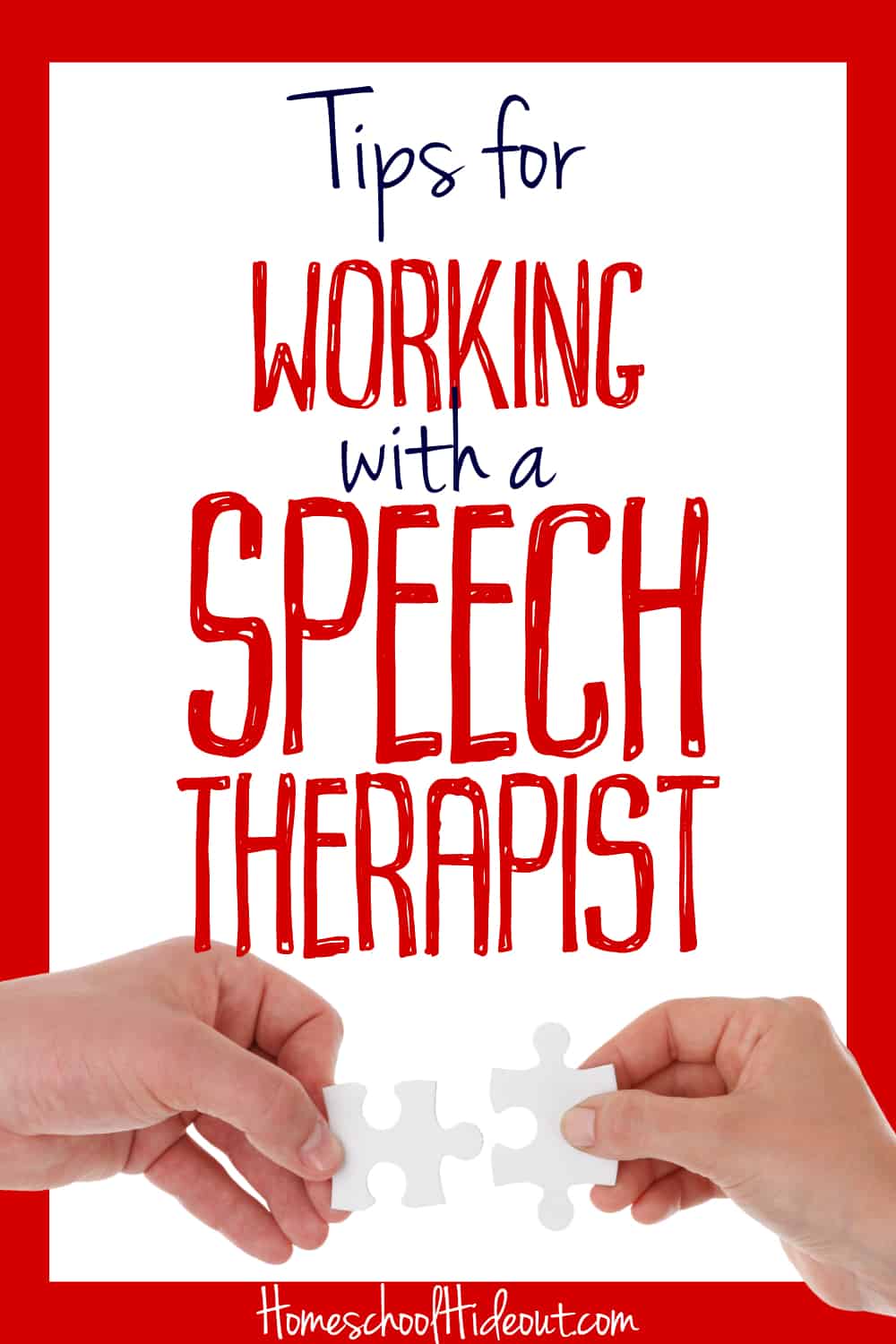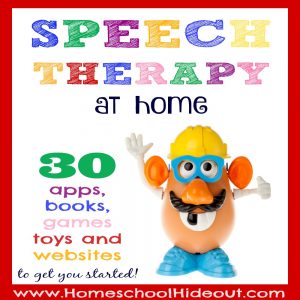Speech therapy is an investment of time and money. As parents, there are always several priorities competing for the time and money that we have available. It’s frustrating to spend the time and money on any sort of therapy, and not see results. We want the best for our children. We want the things that we do for our children to make a difference.
Over my two decades of practicing as a Speech-Language Pathologist (SLP), I’ve grown to believe that both parents and SLPs play an important role in a child’s speech development. They play different, but equally important roles. I’ve put together this post to help explain the role that a Speech-Language Pathologist can play in your child’s speech development, and how to get the most out of that experience.
“Tips for Working with a Speech Therapist” is a guest post, written by Marcus Little, who is a registered Speech-Language Pathologist.

Identifying Speech Errors:
When a SLP starts working with your child, one of the first things that they will do is an assessment. The SLP will work through several diagnostics. These have been designed to identify which speech errors the child is making, at that point in time. The Speech-Language Pathologist will use what they learn from that assessment to develop a treatment plan for your child.
Speech development is an ongoing and fluid process for children. Even if your child has had speech therapy in the past, you should have a new assessment done. Fresh assessments find gaps in therapy and help your SLP get a clear idea of where your child is now.
As a parent, you may already recognize some of the speech errors that your child is making. Lisps (where the /s/ sound is not clear), and substitutions of the /f/ sound for the /th/ sound (saying “baff” instead of “bath”) are both common speech errors in young children. These mistakes are easy for our ears to pick up. Not all speech errors are easy to identify. This is especially true if your child is making multiple speech errors in conversation. Speech-Language Pathologists are highly trained clinicians, skilled in identifying the what, where, when, and why of any speech errors that your child may be making.
Identifying the Order of Sounds to Work On:
We all would love to hear our 3-year old’s speaking with the clarity, and fluency of a TV news anchor. While a few toddlers are capable of that, they are the exception and not the rule.
Speech sounds do not all develop at the same rate. Some develop much later than others, and there is a hierarchy for sound development. Let’s say your child is four years old. Most children that age can say a /w/ sound. If the /w/ sound is in error, it would be a priority. If your child also is struggling with their /v/ sound, it would be less of a priority because it typically develops later. A Speech-Language Pathologist can help you wade through which sounds to work on, and in which order.
Helping your Child Become Stimulable for a Sound:
When a child is stimulable for a sound, this means that they can say the sound when they are given a model. Sometimes this is easy, and other times it is not. Part of the role of a SLP is to identify why a speech error is occurring. They’ll then work with your child so that they can produce the sound correctly. Stimulability is the starting point for speech sound development. If your child is not stimulable for a sound, a Speech-Language Pathologist can help greatly here.
Some of the later-developing sounds can be particularly challenging to produce. There isn’t one way that works for all children to produce all sounds either. It can take some trial and error to find a method that works for your child. In my own practice as a SLP, I see a lot of /r/, /s/, and /th/ errors in school-aged children. I’ve developed some tools that contain methods and techniques to help develop stimulability for these sounds that you may find useful.
Showing You How to Work with Your Child at Home:
If you are expecting your child’s speech to radically improve, just from the sessions with a SLP, you are likely to be disappointed. The magic ingredient in speech sound development is practice. Speech, like any other skill, improves the more it is worked on. Regular practice at home, between sessions makes a huge difference. If you want your child’s speech to improve quickly, it is important to work with a Speech-Language Pathologist who is willing to work with you. They should show you how to work with your child at home.
As a parent, you have one thing that a Speech-Language Pathologist will never have – regular access to your child. I’ve found that when a parent consistently practices with their child between sessions results dramatically improve. Those 5-10 minutes of practice a day make a huge difference. One of the great things about working with homeschool families is that they ARE motivated to do the work between sessions. It seems to be a part of the homeschooling parent DNA.
Many studies confirme the importance of practice, but there are still some Speech-Language Pathologists who shy away from giving homework. This is because often it does not get done. It takes work for a therapist to put together a homework program, and to show how to best work with the child at home. If a Speech-Language Pathologist thinks that homework won’t be done, they may not provide it. If the Speech-Language Pathologist you are working with isn’t giving you homework, ask for it. Make sure it is clear to them that you are willing to do practice between sessions. If the SLP still isn’t willing to provide work for you to do between sessions, it may be in your child’s best interest to find a different therapist to work with.
In Summary…
I am a firm believer that the dynamic that is best for a child, is a relationship where the parent and SLP are working together. A relationship where both play a role, doing what they each do best in support of the child’s speech development. When this dynamic is present, progress happens during AND between therapy sessions. The investment in speech therapy pays dividends sooner, and your child reaches their speech goals faster.
PIN IT!

Marcus Little is a Canadian registered Speech-Language Pathologist. He completed his education in the United States at SUNY Fredonia, an ASHA accredited school. Marcus is passionate about working with parents who want to make a difference in their child’s speech. As a pioneer in teletherapy, he has served online clients, all over the world in his private practice. He is also a homeschooling parent, who loves to travel with his family. His site, www.rapidspeechtherapy.com provides information, tools and training for parents on how to effectively do speech practice at home.









